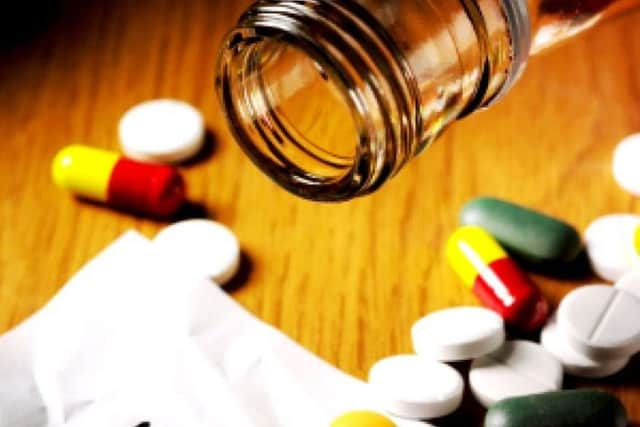Sale of '˜legal highs' has gone underground review finds
and live on Freeview channel 276
The “open sale” of new psychoactive substances (NPS) appears to have been largely eliminated by legislation rolled out in 2016, according to an official report.
But it said arrests and seizures by police indicate the drugs continue to be sold, with street dealers now seen as the most likely main source of supply.
Advertisement
Hide AdAdvertisement
Hide AdThe assessment also noted that new substances continue to appear on the market, suggesting the Government’s crackdown is yet to bring to an end the “game of cat and mouse” between NPS producers and law enforcement agencies.


The Home Office review of the Psychoactive Substances Act 2016 concluded most of its aims “appear to have been achieved, with the open sale of NPS largely eliminated, a significant fall in NPS use in the general population, and a reduction in health-related harms which is likely to have been achieved through reduced usage”.
It added: “However, some areas of concern have remained or emerged since the Act, such as the supply of NPS by street dealers, the continued development of new substances, the potential displacement from NPS to other harmful substances, and continued high levels of synthetic cannabinoid use among the homeless and prison populations.”
There was an explosion in the popularity of NPS on the drug scene around a decade ago.
Advertisement
Hide AdAdvertisement
Hide AdThe drugs contain substances which mimic the effects of “traditional” illegal drugs like cocaine, cannabis and ecstasy.
Ministers brought forward the legislation to crack down on NPS after they were linked to dozens of deaths.
The Act came into force in May 2016, creating a blanket ban on the production, distribution, sale and supply of psychoactive substances in the United Kingdom for human consumption.
Offenders can face up to seven years in prison, while civil orders can be issued to shut down “head shops” and online dealers.
Advertisement
Hide AdAdvertisement
Hide AdThe Home Office review said data from police forces suggests the legislation has led to head shops either closing down or no longer selling NPS, with 332 retailers identified as having ceased sale of the substances.
Anecdotal feedback from police confirms the open sale of NPS has stopped since the introduction of the Act, according to the report.
It said this has been achieved through comparatively little use of civil sanctions and stop and search powers, and more extensive use of the powers to arrest individuals and seize substances.
Police recorded 492 arrests in the first six months after the Act took effect. There were 1,523 seizures of NPS in 2017/18.
Advertisement
Hide AdAdvertisement
Hide Ad“This suggests that the Act has not completely eliminated the supply of NPS, given the large numbers of offences and seizures of suspected NPS recorded,” the report said.
“While the open retailing of NPS has ceased, it appears that NPS continue to be sold, albeit less visibly.”
While there have been around 270 prosecutions and 170 sentences under the Act, there is insufficient evidence to address the question of whether it has been enforced “well”, the paper added.
It also said evidence suggests the potency of NPS, particularly synthetic cannabinoids, has increased in spite of the legislation, while use of nitrous oxide - commonly known as laughing gas - “does not appear to have been affected”.
Advertisement
Hide AdAdvertisement
Hide AdOne of the main aims of the blanket ban was to close off a loophole in the previous regime which saw new drugs appear with a slightly altered chemical make-up almost immediately after the previous version was banned.
But the review said this objective “does not appear to have been achieved”, pointing to indications the emergence of new NPS in the UK “has not ceased”.